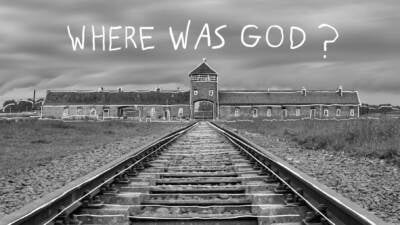What is the difference between vengeance and justice?
Jewish Theology and the Holocaust (Topic 5, part 3)
Share
In April 2020, to coincide with Yom HaShoah, the day in the Jewish calendar dedicated to Holocaust remembrance, and the 75th anniversary of the liberation, Rabbi Sacks launched a series of videos offering his perspective on some of the biggest questions asked about the Holocaust.
People confuse justice and vengeance. They think they are two words for roughly the same thing. They are nothing of the kind. Vengeance is an ‘I-thou’ relationship. I have attacked you, so you attack me, or I attack your family, so you attack my family. Vengeance is the Montagues and the Capulets, or the Corleones and the Tattaglias. It’s my group against yours. That is revenge.
Revenge is forbidden by biblical law. “Thou shalt not take vengeance nor harbour a grudge,” says the Lord in Leviticus, chapter 19. It is absolutely forbidden, and the reason it is forbidden is quite obvious. It is because people and entire families can be prone to perpetuating a cycle of vengeance. It is believed that some such cycle of revenge killed all the inhabitants of Easter Island. Revenge can devastate an entire community, forever.
Justice says that it is no longer me against you. It is both of us, equally, under the impartial verdict of the law. Justice takes the whole thing out of an ‘I-thou’ relationship and elevates it to a completely impartial viewpoint in which we all stand equally under judgement. And that is the only way you can have a law-abiding society.
So when Jews sought justice, they were not seeking vengeance, and the idea that they were seeking vengeance is, I’m afraid, a massive misunderstanding, and even an antisemitic one.

This series, created in partnership with the Holocaust Educational Trust, has been made possible thanks to the generous support of Richard Harris.
More Holocaust Curriculum Resources

Faith After the Holocaust
Rabbi Sacks responds to the devastation of the Holocaust

Where can you find hope in the history of the Holocaust?
Hope and the Holocaust (Topic 10)

How does the Holocaust impact interfaith relations today?
Interfaith Relations and the Holocaust (Topic 9)

How do you connect the Holocaust with the establishment of the State of Israel?
Israel and the Holocaust (Topic 8)

Do you think it’s ever possible to forgive the perpetrators of the Holocaust?
Forgiveness and the Holocaust (Topic 6)

What about a statute of limitations?
Just Punishment and the Holocaust (Topic 5, part 2)

A Just Punishment for the Nazis?
Just Punishment and the Holocaust (Topic 5, part 1)

Do you think the Holocaust represented a failure of humanity?
Humanity and the Holocaust (Topic 2, part 1)

Does God care about individual lives, or merely the survival of the Jewish people as a nation?
God and the Holocaust (Topic 1, part 3)

Do you have faith in humanity after the Holocaust?
God and the Holocaust (Topic 1, part 2)

Where was God during the Holocaust?
God and the Holocaust (Topic 1, part 1)

What is theologically unique about the Holocaust?
Jewish Identity and the Holocaust (Topic 7, part 3)

Practically speaking, is there something unique about the Holocaust?
Jewish Identity and the Holocaust (Topic 7, part 2)

Should a Jewish theological response to the Holocaust include issues of justice?
Jewish Theology and the Holocaust (Topic 3, part 2)

Should the Holocaust be a key ingredient of our Jewish identity?
Jewish Identity and the Holocaust (Topic 7, part 1)

How has the Holocaust impacted your personal relationship with God?
Personal Faith and the Holocaust (Topic 4)

What do you think the Jewish theological response to the Holocaust should be?
Jewish Theology and the Holocaust (Topic 3, part 1)

How can I have faith that God is within each of us if I mistrust humanity?
Humanity and the Holocaust (Topic 2, part 3)

Can we trust people other than ourselves?
Humanity and the Holocaust (Topic 2, part 2)
